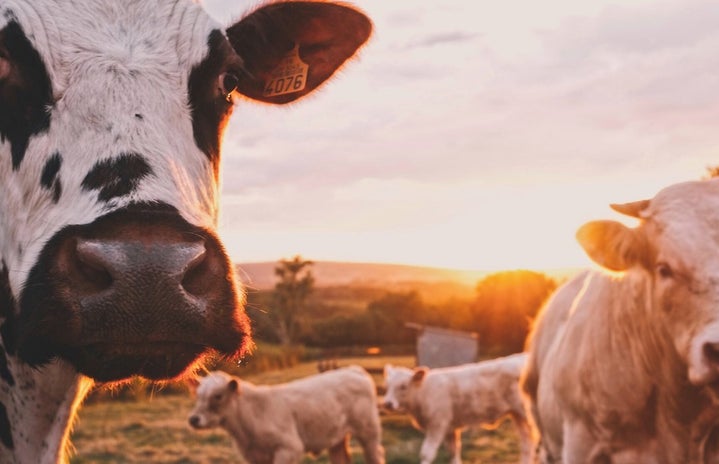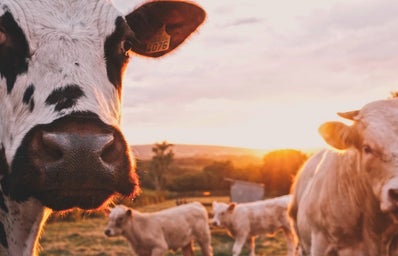As a lactose-intolerant girl with a strong dislike for regular milk ever since I was younger, I already have been avoiding cow’s milk at all costs. But besides the (in my opinion) questionable taste of “regular” milk in general, cow’s milk is also one of the most environmentally detrimental milk options possible, yet also the most popularized. According to the World Wildlife Foundation, the dairy sector contributes to 2% of the total US greenhouse gas emissions, making it one of the leading causes of climate change. On top of this, cow’s milk requires far greater amounts of land, natural resources, and water than any of its alternatives. So, it is safe to say that there are many reasons to turn away from cow’s milk. Navigating the countless dairy substitutes is confusing, to say the least, so here is a breakdown of some of the most common milk substitutes and their environmental benefits.

1. Almond Milk
One of the leading milk alternatives, almond milk, boasts a host of costs and benefits. While it has a low carbon footprint and numerous health benefits, the main concerns lie in the high water usage and excessive pesticide use. The pesticide use as well as the disrupted hibernation patterns that these bees are forced to adapt to pollinate almond groves is extremely detrimental to the already declining honey bee population.
2. Oat Milk
My favorite milk option and in my opinion the best coffee complement, oat milk, is growing in popularity as it continues to be regarded as one of the most sustainable milk alternatives. Amongst its benefits, growing and producing oats requires less water and less land than any other milk, along with producing very little greenhouse gas emissions.

3. Soy Milk
Another popular alternative, soy milk, also has similar benefits as oat milk. It has little water, land, and pesticide use, and is amongst the more commonly used alternatives amongst lactose-intolerant people.
4. Coconut Milk
Similar to soy and oat milk, coconut milk also doesn’t require large amounts of water or pesticide usage. The main problem with coconut milk lies In the way they are farmed. Due to growing global demand, ecosystems have been destroyed and workers have been exploited to keep up with coconut milk demand. If you go the coconut milk route, make sure to shop fair trade brands.
Although this is a small way to help the planet, being mindful about your milk is a good start to making more sustainable decisions in your life. Make sure to look into your different options and decide what nutritional and environmental benefits are most important to you! Read more here to learn more about the different milk alternatives.



